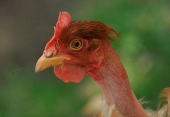
 5
5




"When the whole world is running towards a cliff, he who is running in the opposite direction appears to have lost his mind." C.S. Lewis
Visit https://themaineingredient.com for organic, premium dried culinary herbs that are grown, processed, and packaged in the USA.
 8
8





 5
5





 6
6




Vegetables are parts of plants that are consumed by humans or other animals as food. The original meaning is still commonly used and is applied to plants collectively to refer to all edible plant matter, including the flowers, fruits, stems, leaves, roots, and seeds. An alternative definition of the term is applied somewhat arbitrarily, often by culinary and cultural tradition. It may exclude foods derived from some plants that are fruits, flowers, nuts, and cereal grains, but include savoury fruits such as tomatoes and courgettes, flowers such as broccoli, and seeds such as pulses.
The word vegetable was first recorded in English in the early 15th century. It comes from Old French,[1] and was originally applied to all plants; the word is still used in this sense in biological contexts.
The exact definition of "vegetable" may vary simply because of the many parts of a plant consumed as food worldwide—roots, stems, leaves, flowers, fruits, and seeds. The broadest definition is the word's use adjectivally to mean "matter of plant origin". More specifically, a vegetable may be defined as "any plant, part of which is used for food",[5] a secondary meaning then being "the edible part of such a plant".[5] A more precise definition is "any plant part consumed for food that is not a fruit or seed, but including mature fruits that are eaten as part of a main meal".[6][7] Falling outside these definitions are edible fungi (such as edible mushrooms) and edible seaweed which, although not parts of plants, are often treated as vegetables.[8]
In the latter-mentioned definition of "vegetable", which is used in everyday language, the words "fruit" and "vegetable" are mutually exclusive. "Fruit" has a precise botanical meaning, being a part that developed from the ovary of a flowering plant. This is considerably different from the word's culinary meaning. While peaches, plums, and oranges are "fruit" in both senses, many items commonly called "vegetables", such as eggplants, bell peppers, and tomatoes, are botanically fruits. The question of whether the tomato is a fruit or a vegetable found its way into the United States Supreme Court in 1893. The court ruled unanimously in Nix v. Hedden that a tomato is correctly identified as, and thus taxed as, a vegetable, for the purposes of the Tariff of 1883 on imported produce. The court did acknowledge, however, that, botanically speaking, a tomato is a fruit.




"When the whole world is running towards a cliff, he who is running in the opposite direction appears to have lost his mind." C.S. Lewis
Visit https://themaineingredient.com for organic, premium dried culinary herbs that are grown, processed, and packaged in the USA.
 7
7




A build too cool to miss:Mike's GreenhouseA great example:Joseph's Garden
All the soil info you'll ever need:
Redhawk's excellent soil-building series





 3
3




Yes, vegetables exist. They are good for you. Eat them and stop asking questions. :)
"When the whole world is running towards a cliff, he who is running in the opposite direction appears to have lost his mind." C.S. Lewis
Visit https://themaineingredient.com for organic, premium dried culinary herbs that are grown, processed, and packaged in the USA.
 6
6




Invasive plants are Earth's way of insisting we notice her medicines. Stephen Herrod Buhner
Everyone learns what works by learning what doesn't work. Stephen Herrod Buhner
 4
4




Matt McSpadden wrote:
Trace Oswald: Yes, vegetables exist. They are good for you. Eat them and stop asking questions. :)
That made me laugh :)
Visit Redhawk's soil series: https://permies.com/wiki/redhawk-soil
How permies.com works: https://permies.com/wiki/34193/permies-works-links-threads
 7
7





Observation is where intelligence is born.
 5
5











 2
2




However in some countries, farmers are making much more effort to grow edible tree leaves, for example mulberry leaves. Veggies grown as mono-cultures may degrade farmland. Growing edible leaf shrubs may not require the same level of soil disturbance, although it does sometimes seem that humans can take an good idea and make a muck of it!Rebecca Rosa wrote:So in that way, a vegetable would be defined as the edible product of a plant with a soft stem, while fruits and nuts are produced by woody-stemmed plants like shrubs and trees.
Visit Redhawk's soil series: https://permies.com/wiki/redhawk-soil
How permies.com works: https://permies.com/wiki/34193/permies-works-links-threads

|
I'm a lumberjack and I'm okay, I sleep all night and work all day. Tiny lumberjack ad:
World Domination Gardening 3-DVD set. Gardening with an excavator. richsoil.com/wdg |



